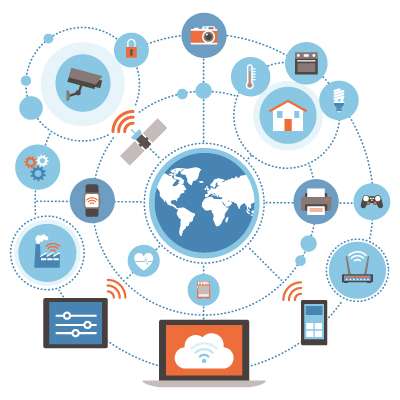PVPN Trends
Stay updated with the latest trends in privacy and security.
IoT: When Your Toaster Knows Your Breakfast Mood
Discover how IoT turns everyday appliances like toasters into mood-based breakfast companions. Are you ready for a smarter morning?
How Smart Appliances Are Transforming Breakfast Routines
In today's fast-paced world, smart appliances are revolutionizing breakfast routines, making mornings more efficient and enjoyable. With devices like smart coffee makers, toasters, and egg cookers, individuals can customize their breakfast experience to suit their specific tastes and schedules. For example, a smart coffee maker can be programmed to brew a fresh pot of coffee at the exact time you wake up, ensuring that you start your day with the perfect cup. The integration of mobile apps allows users to control these appliances remotely, ensuring that breakfast is ready when you need it, without any of the hassle.
Moreover, these technology-driven appliances often come equipped with features that enhance both convenience and nutrition. For instance, smart ovens can provide users with guided recipes that promote healthier breakfast choices. Additionally, some devices even monitor nutritional content and portion sizes, helping individuals to make informed decisions about their meals. As we embrace this new wave of smart appliances, it's clear that transforming our breakfast routines goes beyond just convenience; it also supports a healthier lifestyle and sets the tone for the rest of the day.

The Future of IoT: Can Your Toaster Really Know You?
The Internet of Things (IoT) continues to evolve, blurring the lines between everyday appliances and smart technology. As we delve into the future of IoT, the question arises: can your toaster really know you? With advancements in machine learning and consumer data analytics, household devices are becoming more personalized than ever before. Imagine a toaster that not only toasts your bread to perfection but also learns your preferences over time, adjusting settings based on the type of bread you use or the time of day you typically enjoy breakfast. This level of customization signifies a broader trend in IoT where devices become increasingly intuitive, creating seamless interactions within our homes.
However, this innovation brings forth challenges and considerations regarding privacy and security. As your appliances become more intelligent, they gather and process data about you, raising concerns about how this information is stored and used. For instance, a toaster that knows your preferred toasting time must also ensure that its software is fortified against potential cyber threats. Moving forward, manufacturers will need to prioritize user trust by incorporating stringent security measures and transparency in data usage. The future of IoT, hence, hinges not just on technological advancements but also on the ethical handling of data, ensuring that devices like your toaster enhance your life without compromising your privacy.
Exploring the Connection Between IoT and Personalized Cooking Experiences
The rise of the Internet of Things (IoT) has revolutionized various aspects of our daily lives, and the kitchen is no exception. With devices now able to connect and communicate, personalized cooking experiences are becoming increasingly accessible. For instance, smart appliances such as ovens and refrigerators can learn a user’s preferences and suggest recipes based on available ingredients, dietary restrictions, and previous cooking habits. This dynamic interaction not only enhances user convenience but also encourages culinary creativity, making meal preparation not just a task, but a personalized adventure.
Moreover, the integration of IoT in cooking is exemplified by smart kitchen gadgets that utilize AI to provide real-time feedback and guidance. For example, a smart scale might help measure ingredients accurately while offering suggestions for ingredient substitutions based on what you have on hand. This level of customization allows home cooks to experiment more freely, ultimately leading to more satisfying results. As technology continues to evolve, personalized cooking experiences will likely become a staple in modern kitchens, bridging the gap between culinary art and science.